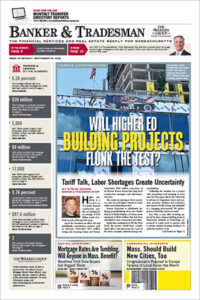MBTA overseers want to press ahead with a budget that uses hundreds of millions of dollars in one-time funding to boost the agency’s spending by nearly 7 percent next fiscal year, much of it on new safety and training initiatives.
The T’s Board of Directors on Wednesday unanimously approved a $2.72 billion preliminary budget for fiscal year 2024, sending it to an outside organization for review ahead of a final vote expected in the summer.
But while officials pitched the nearly $175 million spending increase as necessary to address myriad safety and infrastructure problems, they simultaneously warned that the MBTA’s needs continue to outstrip its consistent resources, especially with ridership lagging more than three years after the pandemic began.
“While I am deeply grateful that staff has found a way to fund the full budget for next year, it is clear to anyone looking at this presentation that this is not a sustainable financial situation,” said outgoing MBTA Board Chair Betsy Taylor. “During the course of the coming year, I hope the staff and the legislature work together to find a way so that we can continue in the future to fund the safety needs of the T, the reliability needs of the T, and accomplish what everyone who speaks about this organization wants to see us do.”
“No organization can continue without the required resources,” she added.
The proposed budget will now head to the MBTA Advisory Board, an independent group representing cities and towns that help fund the agency. Following the Advisory Board’s analysis, the board will vote on a final budget by June 15.
About half of the spending growth would go toward safety and training investments, including changes the MBTA must make to comply with a Federal Transit Administration investigation that flagged substantial risks across the T’s operations.
T officials are budgeting for 7,643 positions in fiscal 2024, an increase of 964 or 14 percent above the current year’s budget. But hitting that target will require an even more dramatic hiring spree: the MBTA has about 1,100 vacancies it has struggled to fill, meaning it will need to bring roughly 2,000 more workers on board to achieve the headcount proposed for the next budget cycle.
The MBTA expanded a hiring bonus, offering $7,500 to candidates for multiple positions, and Gov. Maura Healey also proposed steering $20 million to the agency to help with the recruitment campaign.
Budget-writers leaned on several pots of one-time funding to close a gap between projected revenue and spending. The plan calls for drawing down $261 million from a reserve savings account seeded with pandemic-era federal aid, a bit more than half of its projected balance at the end of fiscal 2023. It also factors in previously authorized state dollars to help with the FTA response and $181 million that Healey proposed in her state budget to cover T capital projects.
Experts both inside and outside of the T have been warning for years that the agency will face enormous financial challenges once it exhausts a dwindling stock of non-recurring aid. A budget gap could erupt as early as fiscal 2025 or fiscal 2026, and reach anywhere between $321 million and $501 million by fiscal 2027, according to the agency’s long-term projections.
The size of the looming shortfall will depend in large part on how successful the MBTA is at attracting riders back to the system to bolster fare revenue.
Like virtually all major metropolitan transit agencies, ridership at the T plummeted off a cliff in March 2020 and still has not fully returned to pre-pandemic levels. Total ridership across all MBTA modes is hovering around 61 percent as much as before COVID, but recovery for the subway specifically has plateaued over the past 18 months amid major service disruptions.
MBTA Chief Financial Officer Mary Ann O’Hara told the board on Wednesday that the fiscal 20240 budget anticipates drawing 80 percent of its revenue from “non-operating” sources, which include local, state and federal subsidies and the agency’s savings. That share is up from about 65 percent in the years before COVID-19 hit.
“We’re relying less on our fare and own-source revenue and more on subsidy revenue,” O’Hara said.







